Actualité
- Littératies plurilingues dans l’éducation et la formation: compte-rendu du XIe congrès EDILIC [compte-rendu]L’Association EDILIC, Éducation à la diversité linguistique et culturelle, a tenu son XIe congrès international à Hambourg en juillet 2025 pour explorer les littéracies plurilingues en éducation. Le congrès a permis une réflexion approfondie et ancrée dans les réalités éducatives plurilingues sur des sujets actuels : l’évaluation, les technologies et… Poursuivre la lecture Littératies plurilingues dans l’éducation et la formation: compte-rendu du XIe congrès EDILIC [compte-rendu]
- SMILE en 3 questions – Swiss Museums In Language Education [Compte-rendu]En 2023, la revue Babylonia a lancé le projet SMILE pour rassembler du matériel didactique pour combiner l’enseignement des langues étrangères et la visite de musées suisses. Laura Loder Buechel et Karine Lichtenauer, les éditrices du projet et Amelia Lambelet, l’éditrice en chef, présentent le projet, racontent sa genèse et… Poursuivre la lecture SMILE en 3 questions – Swiss Museums In Language Education [Compte-rendu]
- Évaluer la compétence linguistique en langue des signes [Vidéo, DE]Évaluer les compétences linguistiques n’est jamais facile. Imaginez la tâche pour la langue des signes ! Au cours d’une conversation stimulante, Katja Tissi et Tobias Haug se renvoient la balle pour présenter le quotidien des enseignant·es et des chercheur·es en langues des signes : quelles sont leurs interrogations ? Quels sont les… Poursuivre la lecture Évaluer la compétence linguistique en langue des signes [Vidéo, DE]
Blog
- Actualité (123)
- Annonces (19)
- Call for papers (12)
- Conférence (6)
- Cycle de conférences (50)
- Didactique du plurilinguisme (24)
- Discussions (41)
- Education numérique (27)
- Entretiens (67)
- Evaluations, tests et standards (14)
- Expériences pratiques (67)
- Formation des enseignant-e-s (39)
- Histoire, culture et littérature (20)
- Immersion et échanges linguistiques (26)
- Jobs (4)
- Langues et diversité (39)
- Lectures (13)
- Podcast (41)
- Politiques linguistiques et société (36)
- Recherche (79)
- Revue Babylonia (15)
- TeachFromHome (5)
- Uncategorized (2)
- Vidéo (18)
- Littératies plurilingues dans l’éducation et la formation: compte-rendu du XIe congrès EDILIC [compte-rendu]
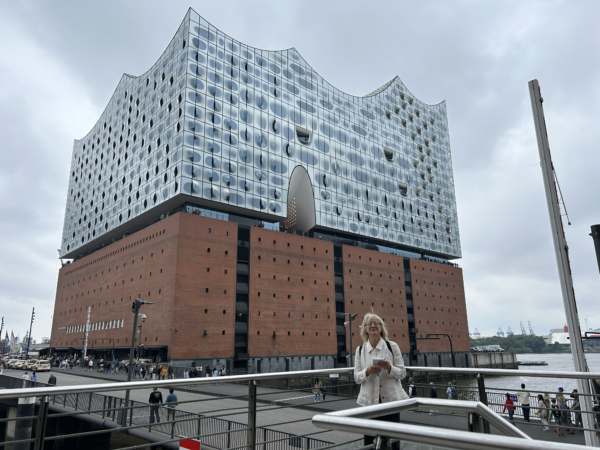 L’Association EDILIC, Éducation à la diversité linguistique et culturelle, a tenu son XIe congrès international à Hambourg en juillet 2025 pour explorer les littéracies plurilingues en éducation. Le congrès a permis une réflexion approfondie et ancrée dans les réalités éducatives plurilingues sur des sujets actuels : l’évaluation, les technologies et notamment l’IA, la valorisation de… Poursuivre la lecture Littératies plurilingues dans l’éducation et la formation: compte-rendu du XIe congrès EDILIC [compte-rendu]
L’Association EDILIC, Éducation à la diversité linguistique et culturelle, a tenu son XIe congrès international à Hambourg en juillet 2025 pour explorer les littéracies plurilingues en éducation. Le congrès a permis une réflexion approfondie et ancrée dans les réalités éducatives plurilingues sur des sujets actuels : l’évaluation, les technologies et notamment l’IA, la valorisation de… Poursuivre la lecture Littératies plurilingues dans l’éducation et la formation: compte-rendu du XIe congrès EDILIC [compte-rendu] - SMILE en 3 questions – Swiss Museums In Language Education [Compte-rendu]
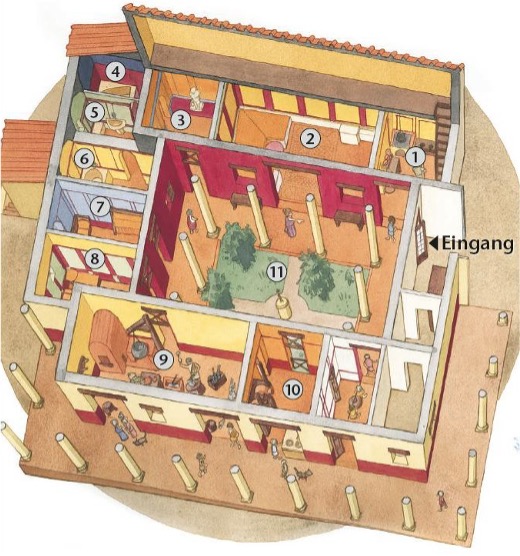 En 2023, la revue Babylonia a lancé le projet SMILE pour rassembler du matériel didactique pour combiner l’enseignement des langues étrangères et la visite de musées suisses. Laura Loder Buechel et Karine Lichtenauer, les éditrices du projet et Amelia Lambelet, l’éditrice en chef, présentent le projet, racontent sa genèse et nous font visiter la Suisse… Poursuivre la lecture SMILE en 3 questions – Swiss Museums In Language Education [Compte-rendu]
En 2023, la revue Babylonia a lancé le projet SMILE pour rassembler du matériel didactique pour combiner l’enseignement des langues étrangères et la visite de musées suisses. Laura Loder Buechel et Karine Lichtenauer, les éditrices du projet et Amelia Lambelet, l’éditrice en chef, présentent le projet, racontent sa genèse et nous font visiter la Suisse… Poursuivre la lecture SMILE en 3 questions – Swiss Museums In Language Education [Compte-rendu] - Évaluer la compétence linguistique en langue des signes [Vidéo, DE]
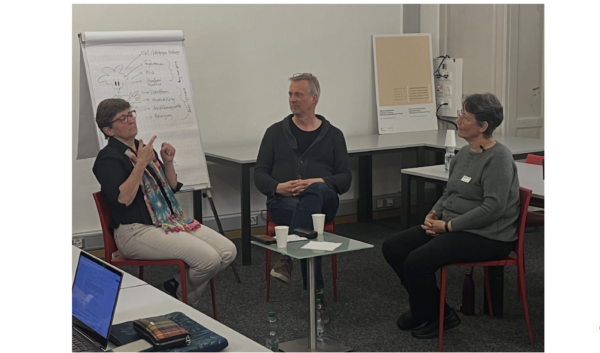 Évaluer les compétences linguistiques n’est jamais facile. Imaginez la tâche pour la langue des signes ! Au cours d’une conversation stimulante, Katja Tissi et Tobias Haug se renvoient la balle pour présenter le quotidien des enseignant·es et des chercheur·es en langues des signes : quelles sont leurs interrogations ? Quels sont les défis à relever, tant dans… Poursuivre la lecture Évaluer la compétence linguistique en langue des signes [Vidéo, DE]
Évaluer les compétences linguistiques n’est jamais facile. Imaginez la tâche pour la langue des signes ! Au cours d’une conversation stimulante, Katja Tissi et Tobias Haug se renvoient la balle pour présenter le quotidien des enseignant·es et des chercheur·es en langues des signes : quelles sont leurs interrogations ? Quels sont les défis à relever, tant dans… Poursuivre la lecture Évaluer la compétence linguistique en langue des signes [Vidéo, DE] - Quoi de neuf dans l’histoire des didactiques des langues étrangères? Rencontre avec Alice Burrows & Zorana Sokolovska [Interview]
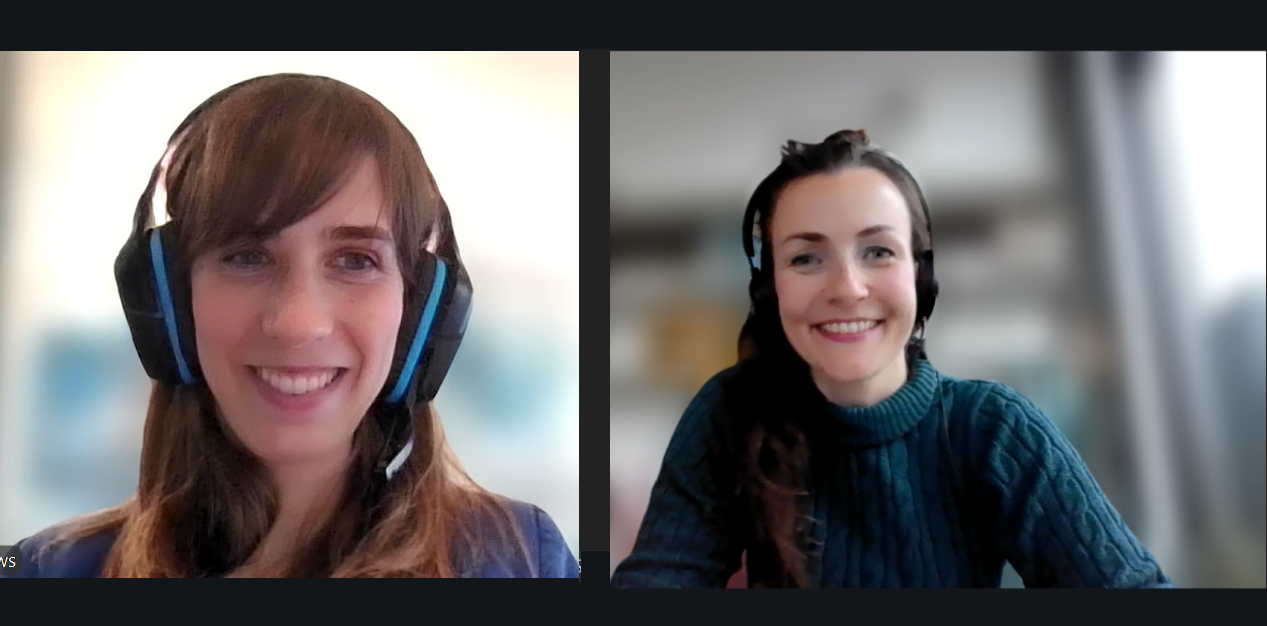 Passer d’une approche grammaire-traduction à une approche communicative ou actionnelle peut sembler une évolution « logique », qui correspond aux évolutions de la société et aux nouveaux savoirs sur l’apprentissage des langues étrangères. Et pourtant…Le 26 août 2025 se sont rencontrés des chercheur·es pour confronter leurs recherches sur les langues et l’histoire lors d’une journée… Poursuivre la lecture Quoi de neuf dans l’histoire des didactiques des langues étrangères? Rencontre avec Alice Burrows & Zorana Sokolovska [Interview]
Passer d’une approche grammaire-traduction à une approche communicative ou actionnelle peut sembler une évolution « logique », qui correspond aux évolutions de la société et aux nouveaux savoirs sur l’apprentissage des langues étrangères. Et pourtant…Le 26 août 2025 se sont rencontrés des chercheur·es pour confronter leurs recherches sur les langues et l’histoire lors d’une journée… Poursuivre la lecture Quoi de neuf dans l’histoire des didactiques des langues étrangères? Rencontre avec Alice Burrows & Zorana Sokolovska [Interview] - Le romanche en Suisse alémanique: îlots et passages [Podcast]
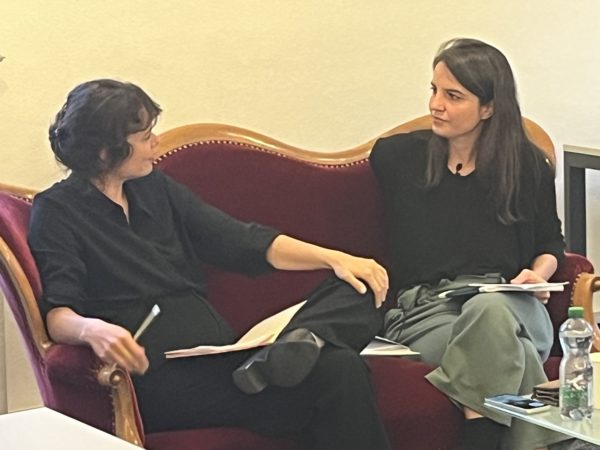 Pour le premier événement, deux Romanches de la diaspora de Suisse alémanique échangent …en allemand. L’écrivaine Viola Cadruvi s’engage de multiples façons en faveur du romanche, tandis que la sociolinguiste Claudia Cathomas étudie les pratiques linguistiques des familles romanches en Suisse alémanique. Au cours d’une conversation ouverte, elles brossent avec humour un tableau nuancé de… Poursuivre la lecture Le romanche en Suisse alémanique: îlots et passages [Podcast]
Pour le premier événement, deux Romanches de la diaspora de Suisse alémanique échangent …en allemand. L’écrivaine Viola Cadruvi s’engage de multiples façons en faveur du romanche, tandis que la sociolinguiste Claudia Cathomas étudie les pratiques linguistiques des familles romanches en Suisse alémanique. Au cours d’une conversation ouverte, elles brossent avec humour un tableau nuancé de… Poursuivre la lecture Le romanche en Suisse alémanique: îlots et passages [Podcast] - Quand taper dans les mains aide à apprendre l’allemand: une approche phonologique de l’alphabétisation des adultes [Interview, DE]
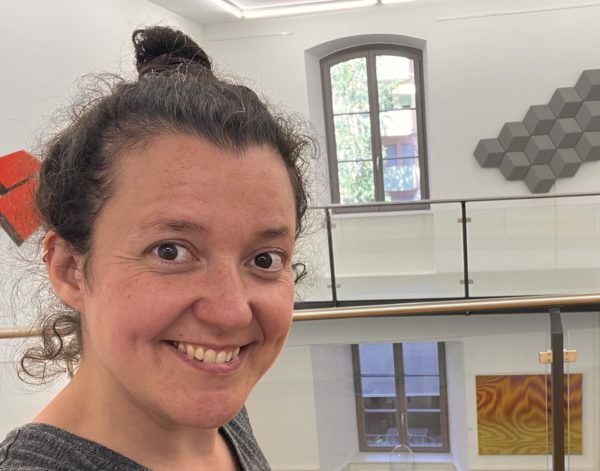 Une interview de Marie-Anne Morand, Cheffe de projet au Centre scientifique de compétences sur le plurilinguisme Pourquoi est-il plus avantageux pour les apprenant·es d’allemand langue seconde (DaZ) de connaître l’alphabet cyrillique plutôt que l’écriture arabe ? Comment concevons-nous l’écriture ? Comment l’écriture est-elle appréhendée par les personnes dont la langue ne s’écrit pas à l’aide… Poursuivre la lecture Quand taper dans les mains aide à apprendre l’allemand: une approche phonologique de l’alphabétisation des adultes [Interview, DE]
Une interview de Marie-Anne Morand, Cheffe de projet au Centre scientifique de compétences sur le plurilinguisme Pourquoi est-il plus avantageux pour les apprenant·es d’allemand langue seconde (DaZ) de connaître l’alphabet cyrillique plutôt que l’écriture arabe ? Comment concevons-nous l’écriture ? Comment l’écriture est-elle appréhendée par les personnes dont la langue ne s’écrit pas à l’aide… Poursuivre la lecture Quand taper dans les mains aide à apprendre l’allemand: une approche phonologique de l’alphabétisation des adultes [Interview, DE]
Annonces
Emploi
Call for papers
- Langues d’Afrique subsaharienne: Quelles places vos langues d’héritage occupent-elles dans la vie de vos enfants ? [appel à participation]
- Ouvrage collectif: Bilingualer Unterricht in der Schweiz: réalités, modelli, visionas [cfp]
- ÖGSD (Innsbruck): Interaktion, Inklusion und Innovation im Sprachunterricht [cfp]
L’agenda du CeDiLE
Die 11. gesamtschweizerische DaF/DaZ-Tagung fragt nach den vielen Dimensionen und neueren Entwicklungen im Kontext von Deutsch als Fremd- und Zweitsprache. Welche Lernenden, Lehrenden oder anderen gesellschaftlichen Gruppen sind von DaF/DaZ allgemein und/oder den Dimensionen resp. Entwicklungen betroffen? Wie gelingt es, über didaktische Konzepte, methodische Zugänge und sprachbiografische Erfahrungen Prozesse des Lernens und der Teilhabe zu initiieren und zu optimieren? Wozu dient Sprachunterricht heute – und welche (auch politischen, sozialen oder kulturellen) Ziele sind damit verbunden?
Alle Informationen auf der Webseite DaF/DaZ-Tagung
